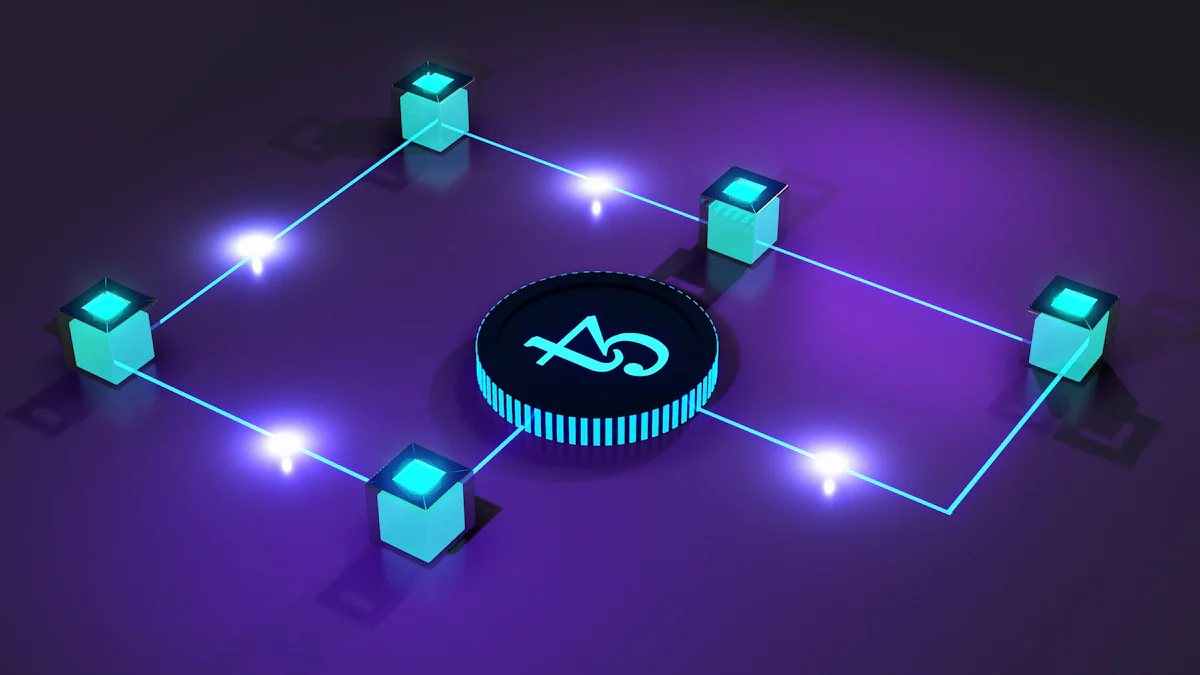Understanding the Benefits of Decentralized Networks in 2024

Decentralized Networks in 2024
In 2024, decentralized networks are reshaping the landscape of various industries, bringing forth a new era of enhanced security, transparency, and resilience. These networks operate on a distributed architecture, promoting trust and reliability through peer-to-peer connections. Blockchain technology plays a pivotal role in ensuring the integrity and security of transactions within these decentralized networks. The use of smart contracts further strengthens the trustworthiness of these systems by automating and enforcing agreements without the need for intermediaries.
Blockchain Technology: "Blockchain technology ensures secure and transparent transactions through its decentralized nature."
This shift towards decentralization is revolutionizing traditional centralized structures, offering a more robust and accountable framework for the future.
Enhancing Security and Transparency
Decentralized networks in 2024 are at the forefront of enhancing security and transparency across various industries. Through the utilization of distributed ledger technology, these networks ensure secure and transparent transactions, promoting trust and reliability in a decentralized environment.
Blockchain Technology
The implementation of blockchain technology within decentralized networks plays a crucial role in ensuring the security and transparency of transactions. By utilizing its decentralized nature, blockchain technology creates an immutable record of transactions, safeguarding them from unauthorized alterations or tampering.
Smart contracts further enhance the security and trustworthiness of transactions within blockchain networks. These self-executing contracts automate and enforce agreements without the need for intermediaries, thereby minimizing the potential for fraud or manipulation.
Transparency in Decentralized Networks
Decentralized networks provide transparent and immutable records of transactions, fostering trust and accountability among participants. The transparent nature of these networks reshapes industries by promoting fair and open governance, ultimately leading to greater integrity within business processes.
The immutable records maintained by decentralized systems create a level playing field for all participants, ensuring that transactions are conducted with transparency and integrity.
By leveraging distributed ledger technology, decentralized systems are redefining security and transparency standards across various sectors while promoting trust and accountability.
Reshaping Industries with Trustless Transactions
Impact on Financial Services
Decentralized networks are causing a significant shift in the financial services sector by introducing trustless transactions and reducing reliance on intermediaries. This transformation is redefining the traditional approach to financial transactions and asset management. The implementation of decentralized networks and blockchain technology has led to the emergence of cryptocurrencies, which are revolutionizing the way financial transactions are conducted. These digital currencies operate on decentralized networks, enabling seamless and trustless transactions across borders while minimizing the need for intermediaries.
Cryptocurrency Expert: "The use of cryptocurrency in decentralized networks is reshaping the financial industry's approach to transactions and asset management."
The trustless nature of these transactions promotes efficiency, security, and transparency, offering individuals greater control over their financial assets while reducing transaction costs. As a result, decentralized networks are fostering a more inclusive and accessible financial ecosystem.
Decentralized Social Networks
Decentralized social networks are empowering users by providing them with greater control over their data and interactions, thereby reshaping the landscape of social media. The trustless nature of these decentralized platforms ensures privacy and security for users, creating a more transparent and equitable online environment. By eliminating central authorities that have traditionally controlled user data, decentralized social networks offer a new paradigm where users can engage in social interactions with enhanced autonomy.
Users have the ability to manage their data without relying on centralized entities.
Trustless interactions promote a more secure environment for sharing information and engaging with others.
Decentralized social networks prioritize user privacy and data ownership, aligning with the principles of decentralization.
These advancements signify a fundamental shift in how social networking platforms operate, emphasizing user empowerment and data privacy within an increasingly interconnected digital world.
Revolutionizing Governance and Transactions
Smart Contracts and Governance
In the realm of decentralized networks, smart contracts are spearheading a revolution in governance by automating and enforcing agreements, thereby diminishing the reliance on intermediaries. These self-executing contracts, powered by blockchain technology and distributed ledger systems, streamline decision-making processes and promote transparency within governance models. By eliminating the need for intermediaries, smart contracts ensure that agreements are executed as intended, reducing the potential for disputes or manipulation. This automated approach to governance not only enhances efficiency but also fosters greater trust among participants in decentralized networks.
Cryptocurrency and Transactions
Cryptocurrency, underpinned by cryptographic technology and decentralized networks, is facilitating borderless and efficient transactions while transforming traditional payment systems. The use of cryptocurrency promotes financial inclusion by providing individuals with access to global economic participation without the constraints of traditional banking systems. This empowerment of individuals through cryptocurrency transactions aligns with the principles of decentralization, offering an alternative framework for conducting financial transactions in a transparent and secure manner.
Embracing Decentralization in 2024
In the rapidly evolving landscape of 2024, embracing decentralized networks has become imperative for advancing security, transparency, and efficiency across various industries. The shift towards decentralized platforms and distributed systems signifies a fundamental transformation in how businesses and individuals interact and transact. Embracing decentralization fosters an environment where trustless transactions, transparent governance, and enhanced security are not just aspirations but tangible realities.
Industry Expert: "The embrace of decentralized platforms is reshaping traditional business models by promoting trustless transactions and transparent governance."
Embracing decentralization empowers individuals and organizations to participate in a more secure and accountable ecosystem.
The adoption of distributed systems ensures that data integrity and transactional transparency are at the forefront of industry practices.
This paradigm shift towards embracing decentralized networks marks a pivotal moment in the evolution of various sectors, paving the way for a more resilient, transparent, and inclusive future.
